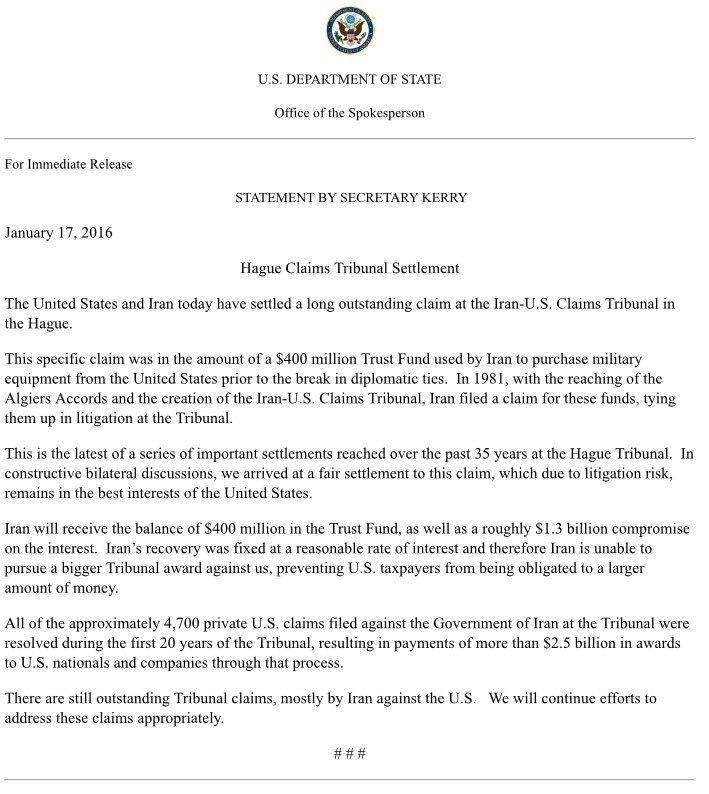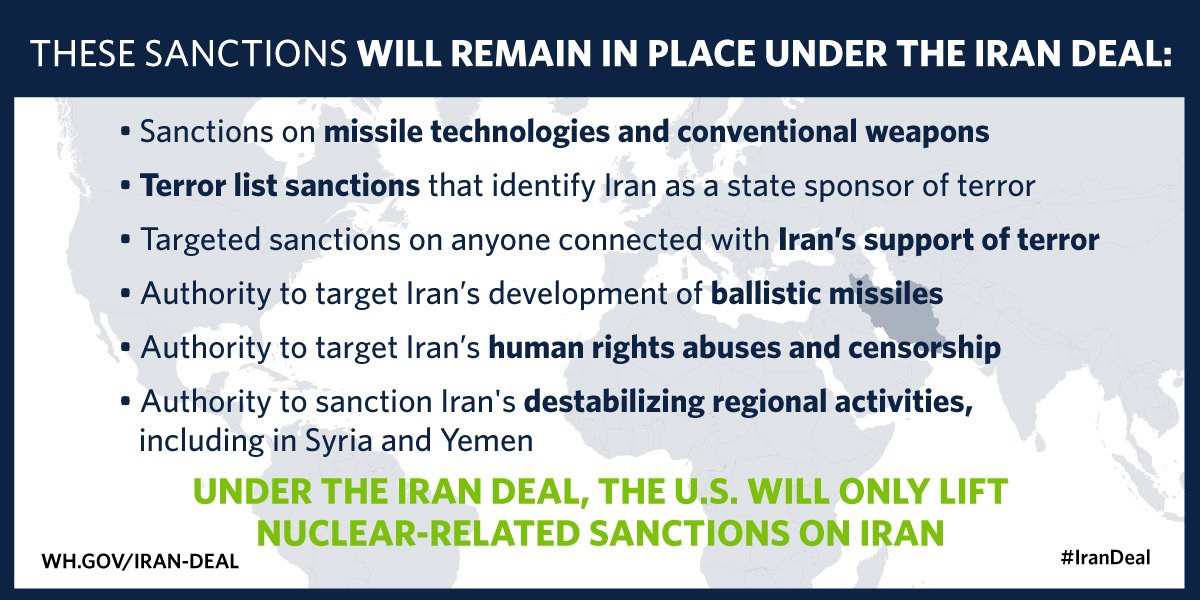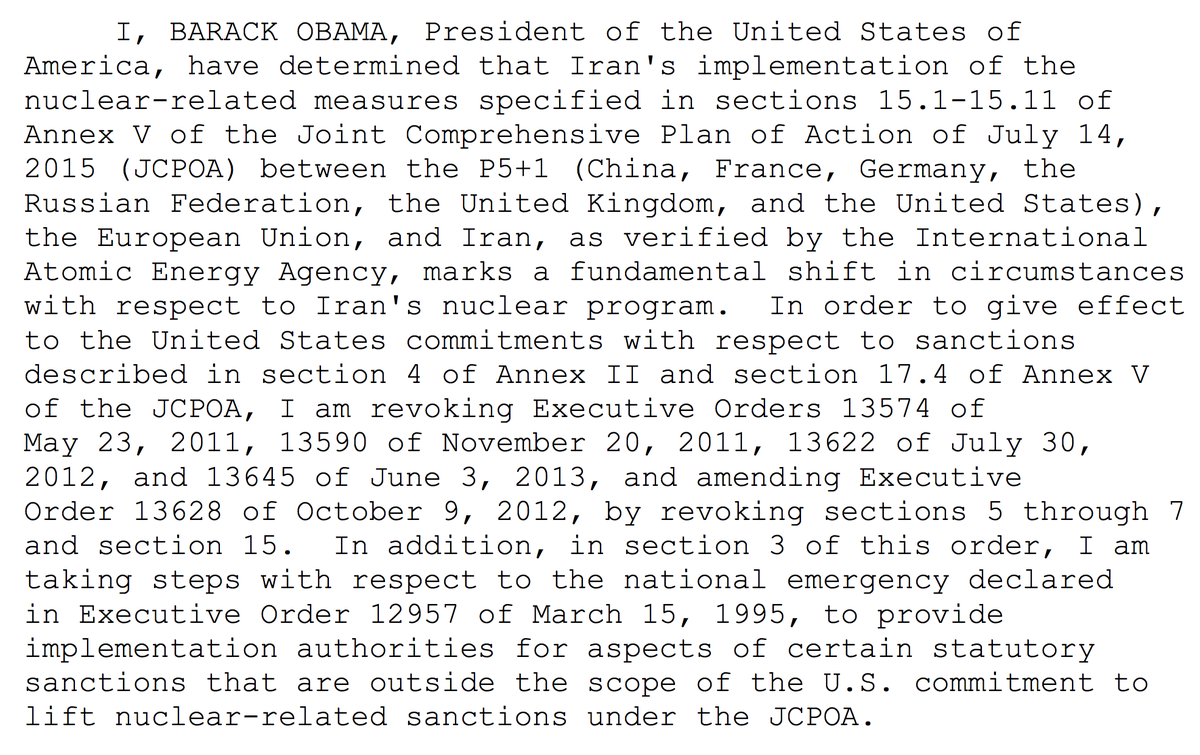Prisoner Swap May Help Iran Arm Assad
Bloomberg: In exchange for the release of four American prisoners, the Barack Obama administration agreed to free seven Iranians in U.S. custody and stop trying to arrest 14 others, two of whom the U.S. government had accused of funneling weapons to the Bashar al-Assad regime and Hezbollah in Syria.
For years, Iran’s privately-owned Mahan Air has been using its planes to bring soldiers and arms directly to the Syrian military and the Lebanese terrorist group Hezbollah by flying them from Tehran to Damascus, according to the U.S. Treasury Department. In 2013, Treasury sanctioned Mahan’s managing director, Hamid Arabnejad, for overseeing the company’s efforts to evade U.S. and international sanctions and aiding the Iranian Revolutionary Guards Corps’ elite Quds Force.
“Arabnejad has a close working relationship with IRGC-QF personnel and coordinates Mahan Air’s support and services to the paramilitary group,” the Treasury Department said. “He has also been instrumental in facilitating the shipment of illicit cargo to Syria on Mahan Air aircraft.”
According to the Iranian state media organization FARS, Arabnejad is one of the 14 Iranians who no longer will have Interpol red notices out on them, which are meant to ensure their arrest and extradition to the U.S. on charges that will now also be dropped. The executive order he is sanctioned under is for support for terrorism. In 2011, the U.S. sanctioned the entire airline for ferrying personnel and arms for the Revolutionary Guards Corps and Hezbollah, which it officially considers a terrorist organization. The White House declined my request for comment on whether Arabnejad was among the de-listed Iranians, but did not dispute the 14 names on the FARS list.
Mahan Air is “yet another facet of the IRGC’s extensive infiltration of Iran’s commercial sector to facilitate its support for terrorism,” the Treasury’s under secretary for terrorism and financial intelligence, David Cohen, told Bloomberg News at the time.
A 2012 press release from the Treasury says, “Iran used Iran Air and Mahan Air flights between Tehran and Damascus to send military and crowd control equipment to the Syrian regime.” Hezbollah and the Assad government coordinate with Mahan Air during their attacks on Syrian civilians and opposition groups, the Treasury Department said.
According to the Iranian news service, another Iranian who will no longer have to look over his shoulder when traveling around the world is Gholamreza Mahmoudi, also a top official at Manar Air. When Treasury sanctioned Mahmoudi in 2012, it said he worked closely with Arabnejad to evade sanctions and purchase new aircraft.
Last May, as the Iranian nuclear deal was being finalized, Mahan Air was able to purchase nine used Airbus commercial airliners, taking advantage of a relaxation of sanctions that came with an interim agreement Iran struck with Western powers. Experts say that the new lifting of the Interpol “red notices” — essentially arrest warrants — on Arabnejad and Mahmoudi further reduces pressure on Mahan Air and, by extension, on the Assad regime and Hezbollah, even though their U.S. Treasury Department sanctions remain in place.
“The one big impediment for them to run their business abroad was the red notice, not the U.S. sanctions,” said Emanuele Ottolenghi, a senior fellow at the Foundation for Defense of Democracies, a Washington think tank that has advocated tough sanctions on Iran. “Clearly it was not impossible for them to travel. The fact they are no longer on the red notice means that as long as they don’t try to come to the U.S., they will probably live their professional lives unencumbered.”
The lifting of the red notices also has a symbolic effect, he said, by telling countries and companies around the world that it’s OK to look the other way as Mahan Air helps the Assad regime and Hezbollah.
“These guys have been working day in and day out flying arms to Assad regime,” said Ottolenghi. “This is another signal that there will be no consequences for this airline and the crimes they are responsible for.”
A U.S. official told me Saturday that the U.S. removed any Interpol red notices and dismissed any charges against 14 Iranians for whom it was assessed that extradition requests were unlikely to be successful.
President Obama spoke about the Iran prisoner swap Sunday and said none of the 7 released Iranians were charged with terrorism or any violent offenses. “They are civilians,” he said. But Obama didn’t mention the 14 who no longer have international arrest warrants, including the Mahan Air executives.
“We remain steadfast in opposing Iran’s destabilizing behavior elsewhere, including its threats against Israel and our gulf partners, and its support for violent proxies in places like Syria and Yemen,” Obama said.
The administration has repeatedly said that the Iran nuclear deal and the prisoner swap were separate events, pursued through parallel tracks of diplomacy. But there’s concern on Capitol Hill that the effort to stop the Revolutionary Guards Corps’ violent activities is suffering in the wake of the nuclear agreement.
“This flawed deal is only entrenching Iran’s military and security forces that run the country. Now more than ever, we need a policy of backbone, not backing down,” House Foreign Affairs Committee chairman Ed Royce said Saturday.
On the other hand, Treasury did go forward Sunday with sanctions on Iran’s ballistic missile program that had been delayed because of the prisoner negotiations.
The return of the American prisoners, including Washington Post reporter Jason Rezaian, is of course good news, and the Obama administration believes the costs of the trade were worth the benefits. But some of those costs could be felt by the Syrian people, who had no say in the trade, got nothing from it and are still begging for more international support to stop Assad’s slaughter of civilians.
*** Going back to 2007, there were clandestine flights from Caracas, Damascus and Tehran.
NYT’s CARACAS, Venezuela, March 2 — Iran is already Venezuela’s closest ally outside Latin America, with ventures to produce oil and build cars and tractors together. Now, travelers between the countries can also take a weekly flight between Caracas and Tehran.
The flight, which was inaugurated here on Friday and includes a stop in Damascus, Syria, is operated in a code-share agreement by the Venezuelan state-controlled airline Conviasa and Iran’s national carrier, Iran Air.
Officials at Conviasa said that the company would use a Boeing 747 on the route and that soon it would also make available a European-made Airbus 340.
Under President Hugo Chávez, Venezuela has tightened relations with Iran and expressed explicit support for its uranium enrichment program.
Mr. Chávez has also reached out to Syria, making plans to build a $1.5 billion oil refining complex there. He sees relations with Iran and Syria, both under United States sanctions, as a centerpiece of a foreign policy aimed at countering American influence around the world.
In 2010:
Mahan Air made its first flight to Kuala Lumpur International Airport (KLIA) today (January 28).
Iran’s second largest airline is offering twice weekly flights from Shiraz to Kuala Lumpur, using an Airbus A310-300, which has a seating capacity of 196.
*** Let us not forget that in circa 2000: In the hotel room of Yazid Sufaat, a former Malaysian Army captain and businessman, in a hotel in Kuala Lumpur. The meeting lasted from 5 January 2000 to 8 January 2000. The summit’s purpose was allegedly to plan future attacks, which apparently included the October 2000 bombing of the USS Cole and the 11 September 2001 attack plot. The attendance consisted of Arab veterans of the Soviet war in Afghanistan, including Hambali, Ramzi bin al-Shibh, Nawaf al-Hazmi, Khalid al-Mihdhar, and Tawfiq bin Attash.
And in March of 2015:
KUALA LUMPUR – Malaysian police have foiled an attempt by a terror cell of the Islamic State in Iraq and Syria (ISIS) to attack the Saudi Arabia and Qatar embassies in Kuala Lumpur with the arrest of two Iraqi nationals.
Sources said the two men were detained by intelligence officials at a shopping mall last Thursday.
“They were planning to attack the embassies on March 31 at the behest of IS,” a source told The Star last Saturday, using another name of ISIS.








